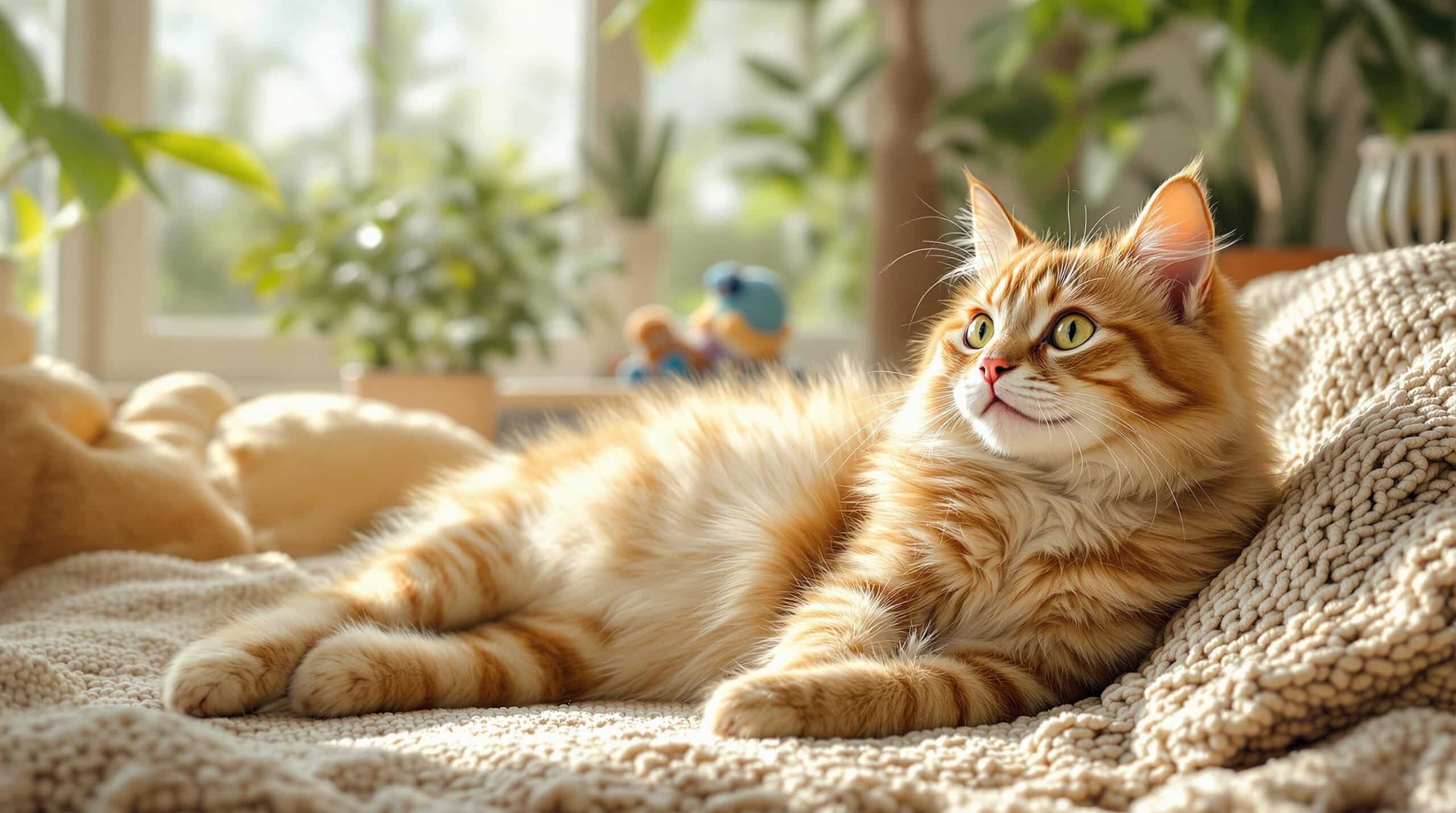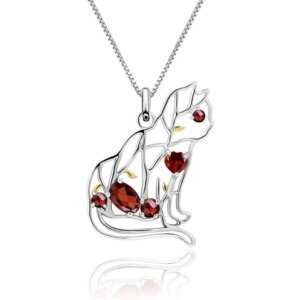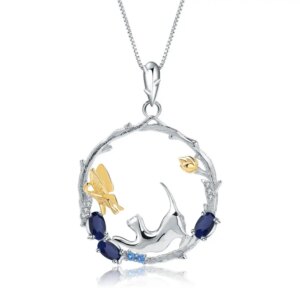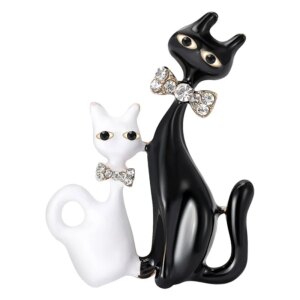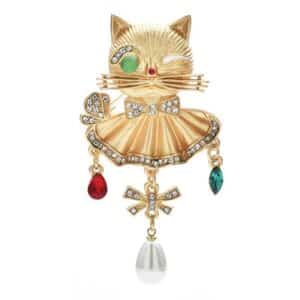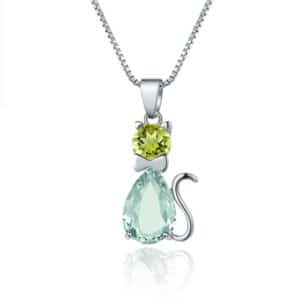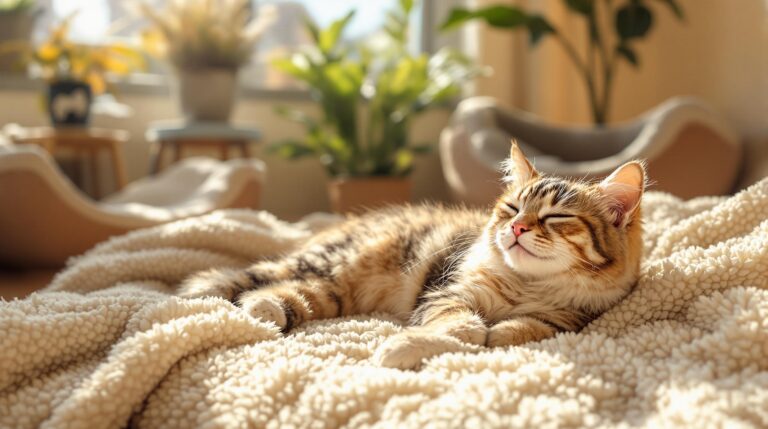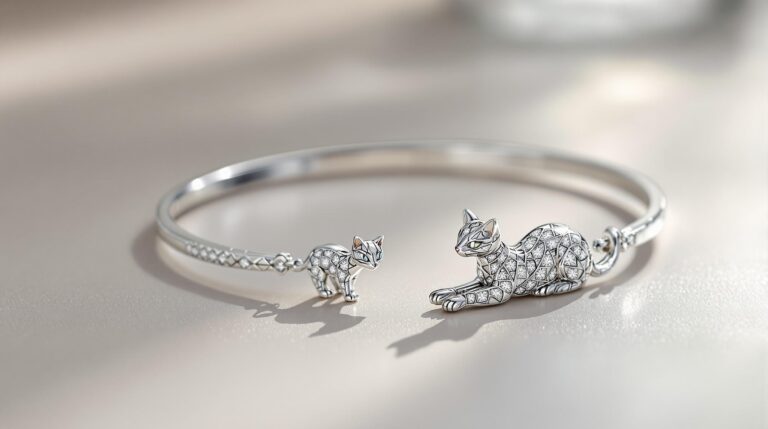Cats Hyperthyroidism: Hyperthyroidism is a common condition in cats, affecting their thyroid glands and leading to various health issues. This article will explore the symptoms, causes, and treatment options for hyperthyroidism in cats. By understanding this condition, cat owners can provide the best care and support for their feline companions. Reading this article will help you recognize early signs, choose the right treatment, and manage the condition effectively, ensuring a better quality of life for your cat.
Cat Karma Creations: Recognizing the Symptoms of Hyperthyroidism in Cats
Cat Karma Creations: Hyperthyroidism in cats can manifest in various ways, and recognizing the symptoms early is crucial for timely treatment.
Common Symptoms
Cat Karma Creations: Some of the most common symptoms of hyperthyroidism in cats include:
- Weight loss despite an increased appetite
- Hyperactivity and restlessness
- Increased thirst and urination
- Vomiting and diarrhea
- Coat changes, such as poor fur quality
Behavioral Changes
Cat Karma Creations: Cats with hyperthyroidism may exhibit noticeable behavioral changes, which can be distressing for both the cat and the owner. These changes can include:
- Increased vocalization, especially at night
- Restlessness and difficulty settling down
- Aggression or irritability
- Increased activity levels
Physical Signs
Cat Karma Creations: Physical signs of hyperthyroidism in cats can also be observed during a veterinary examination. These signs may include:
- Enlarged thyroid glands (thyroid nodules)
- Rapid heart rate
- High blood pressure
- Palpitations
Cat Karma Creations: Diagnosing Hyperthyroidism in Cats
Cat Karma Creations: Diagnosing hyperthyroidism in cats involves a combination of clinical signs, physical examination, and diagnostic tests.
Blood Tests
Cat Karma Creations: Blood tests are essential for diagnosing hyperthyroidism in cats. They help measure the levels of thyroid hormones, such as T4, in the blood. Elevated T4 levels are a strong indicator of hyperthyroidism. Your veterinarian may also perform a complete blood count (CBC) and a biochemistry panel to assess your cat’s overall health.
Thyroid Level Measurements
Cat Karma Creations: Thyroid level measurements are a key part of the diagnostic process. These tests measure the concentration of thyroid hormones, particularly T4, in the blood. High T4 levels confirm the presence of hyperthyroidism. In some cases, additional tests may be needed to determine the severity of the condition.
Additional Diagnostic Tests
Cat Karma Creations: In addition to blood tests and thyroid level measurements, your veterinarian may recommend other diagnostic tests to get a comprehensive understanding of your cat’s condition. These tests can include:
- Ultrasound to visualize the thyroid glands and check for nodules or tumors
- Radioactive iodine scan to assess thyroid function and detect overactive areas
- Chest X-rays to check for signs of heart disease, which can be a complication of hyperthyroidism
Cat Karma Creations: Treatment Options for Hyperthyroidism in Cats
Cat Karma Creations: There are several treatment options available for hyperthyroidism in cats, each with its own advantages and considerations. The choice of treatment depends on the severity of the condition, the cat’s overall health, and the preferences of the owner and veterinarian.
Medication
Cat Karma Creations: Medication is a common treatment for hyperthyroidism in cats. The most frequently used medication is methimazole, which works by reducing the production of thyroid hormones. While medication is effective, it requires ongoing administration and regular monitoring to ensure the correct dosage and to manage any side effects.
Surgery
Cat Karma Creations: Surgery, known as thyroidectomy, involves removing the overactive thyroid gland. This procedure can be curative, but it comes with risks such as anesthesia complications and potential damage to the parathyroid glands. Cats that undergo surgery typically recover within a few weeks, and regular follow-up appointments are necessary to monitor for recurrence.
Radioactive Iodine Therapy
Cat Karma Creations: Radioactive iodine therapy is a highly effective treatment for hyperthyroidism in cats. It involves injecting a small dose of radioactive iodine, which is taken up by the overactive thyroid tissue and destroys it. This treatment is usually curative and has minimal side effects, although cats need to be hospitalized for a short period to ensure the radioactivity levels are safe.
Natural Remedies
Cat Karma Creations: Some cat owners explore natural remedies and alternative treatments for hyperthyroidism. These can include herbal supplements, acupuncture, and dietary changes. While these methods may provide some relief, they should be used in conjunction with conventional treatments and under the guidance of a veterinarian. Natural remedies can complement traditional treatments but should not replace them entirely.
| Feature | Medication | Surgery | Radioactive Iodine Therapy |
|---|---|---|---|
| Effectiveness | High, but requires ongoing treatment | High, often curative | Very high, usually curative |
| Cost | Moderate, ongoing expenses | High, one-time cost | High, one-time cost |
| Recovery Time | Immediate, but requires regular monitoring | Several weeks, with potential complications | Several weeks, minimal complications |
| Side Effects | Vomiting, lethargy, reduced appetite | Pain, infection, anesthesia risks | Temporary lethargy, increased thirst and urination |
| Long-term Management | Regular blood tests and dose adjustments | Follow-up appointments, monitoring for recurrence | Minimal, occasional check-ups |
Cat Karma Creations: Managing Hyperthyroidism in Cats
Cat Karma Creations: Managing hyperthyroidism in cats involves a combination of treatment, diet, and environmental support. Proper management can help improve your cat’s quality of life and prevent long-term complications.
Diet and Nutrition
Cat Karma Creations: Diet plays a crucial role in managing hyperthyroidism in cats. Feeding a diet low in iodine can help reduce thyroid hormone production. Your veterinarian can recommend specific diets and supplements that are suitable for your cat. Additionally, ensuring your cat has access to fresh water and a balanced diet can support their overall health.
Environmental Enrichment
Cat Karma Creations: Creating a stress-free and enriching environment is important for cats with hyperthyroidism. This can include:
- Providing plenty of toys and scratching posts to keep your cat mentally and physically stimulated
- Creating quiet and comfortable resting areas
- Minimizing changes in the household routine to reduce stress
- Offering vertical spaces and hiding spots to make your cat feel secure
Regular Monitoring and Follow-up
Cat Karma Creations: Regular monitoring and follow-up appointments are essential for managing hyperthyroidism in cats. Your veterinarian will perform periodic blood tests to check thyroid hormone levels and adjust treatment as needed. Monitoring your cat’s weight, appetite, and behavior can also help you detect any changes that may require attention.
Cat Karma Creations: Popular Quote
“A cat improves the garden soil far more than a spade.” – Nicholas Monsarrat
Cat Karma Creations: Statistical Fact
According to the American Veterinary Medical Association, hyperthyroidism is one of the most common endocrine disorders in cats, affecting approximately 10% of cats over the age of 10. While this statistic is from a reputable source, it is important to note that the prevalence can vary based on geographic location and other factors.
Cat Karma Creations: Three Tips for Managing Hyperthyroidism in Cats
- Regular Veterinary Check-ups: Schedule regular check-ups with your veterinarian to monitor your cat’s thyroid hormone levels and adjust treatment as needed.
- Low-Iodine Diet: Feed your cat a diet low in iodine to help reduce thyroid hormone production. Consult your veterinarian for specific diet recommendations.
- Environmental Enrichment: Create a stress-free environment for your cat by providing plenty of toys, scratching posts, and comfortable resting areas. This can help reduce stress and improve their overall well-being.
Cat Karma Creations: Popular Questions About Hyperthyroidism in Cats
- What are the early signs of hyperthyroidism in cats? Early signs include weight loss despite an increased appetite, hyperactivity, increased thirst and urination, and poor coat quality.
- Can hyperthyroidism be cured? While hyperthyroidism can be managed effectively, it is not always curable. Treatment options like surgery and radioactive iodine therapy can be curative in many cases, but ongoing monitoring is still necessary.
- Are there any natural remedies for hyperthyroidism in cats? Some cat owners explore natural remedies like herbal supplements and dietary changes. However, these should be used in conjunction with conventional treatments and under the guidance of a veterinarian.
- How often should I take my cat to the vet for hyperthyroidism? Regular follow-up appointments are essential. Your veterinarian will recommend a schedule based on your cat’s specific needs, but typically, check-ups are recommended every 3-6 months.
Cat Karma Creations: Final Thoughts About Cats’ Hyperthyroidism
Cat Karma Creations: Hyperthyroidism in cats is a manageable condition with the right knowledge and care. By recognizing the symptoms early, seeking appropriate treatment, and providing ongoing support, you can ensure your cat lives a healthy and happy life. If you suspect your cat has hyperthyroidism, consult your veterinarian for a proper diagnosis and treatment plan. Visit our website to find excellent gifts for cat lovers and follow us on social media for more tips and updates. You can also reach out to us via email at info@catkarmacreations.com or through our contact form. For more information, feel free to call us at (800) 343-1604 or visit our social media pages on Facebook and Instagram.

